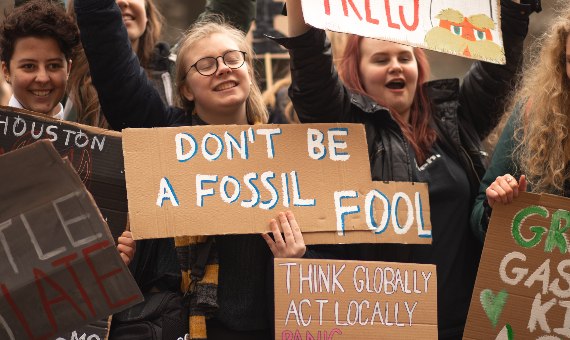Back in the eighties of the last century, a global reflection process emerged addressing sustainability and the sustainable development of the planet as one of the great challenges facing humanity.
Various factors are fueling the debate:
- The obvious contradictions between economic growth and environmental protection and the prospects for sustaining the growth rates of countries with more developed economies. This especially includes the rapid growth of Asia in the medium- to long-term.
- Progressive reservations to restrictions and limitations imposed by “the present state of technology and social organization, or the environment´s ability to satisfy current and future needs.” Perhaps the biggest market failure is global pollution in all its forms, because generally, market agents do not pay (internalize) the costs of such effects.

Thanks to a sustained rate of productivity growth, the current economic model has undoubtedly generated a considerable increase in well-being in much of the world during the last two centuries. This model, however, has not improved the deepening profound inequality for family income among the world’s countries. The current highest (average) income (Qatar) is 182 times that of the Central African Republic (IMF, 2017).
Although there are certainly societies that have shown more or less uniform advances in well-being indicators, there is also evidence that in most of the world’s economies the relative differences in family income have been accentuated within them.The most distressing example in this regard is that of the world’s largest economy: the United States. In this society and in many others, services such as health or education do not reach all families – or are provided with serious deficiencies – and this condition tends to perpetuate poverty.
The most recent and notable social and economic successes are in Asia, where models based on the promotion of investment and exports of manufactured goods have made it possible to convert millions of people living in poverty into burgeoning urban middle classes. Latin America had also seen advances in numerous economic and social indicators at the turn of the century, but the global financial crisis of 2007 and 2008 and, above all, the magnitude of the health emergency and its impacts on labor, social issues, health areas, and education, etc. have set back many previous achievements.

National economies are the product of societies that depend on the environment. However, much of the economic growth described in the previous paragraph has generated very severe environmental costs, which include highly polluting agricultural and livestock practices and the management and consumption of unsafe wild species, which has dramatically increased the appearance of new infectious diseases. Indeed, we have invaded many habitats all over the globe. Although there were host species that carried the virus for years, with its (first) contact with a human, the virus found a new species in which to reproduce. We opened a door that should never have been opened. Unless immediate action is taken, human beings will continue depleting the planet’s natural resources and quality of life levels will begin to decline in a few years. In fact, it all should have been in place years ago. The World Wide Fund for Nature (WWF) warns that, if we continue to increase consumption at this rate, we will need more than twice the planet’s resources to supply ourselves by the year 2050. Deforestation, logging, invasion of habitats, CO2 emissions and other “economic” practices have caused this phenomenon. There is evidence that the pace of pandemics has accelerated in the last fifty years. This is only the beginning.
Indicators of environmental deterioration in practically all the world’s economies are evident. The average global temperature is inexorably increasing, which is already causing climate changes, which is becoming the main threat to humanity’s future. The question is how to deal with that threat. Stopping climate change must be the central element of global economic policy.

Until now mainstream economics has suggested that the best way to limit greenhouse gas emissions is to tax carbon emissions (that is, create an offset market) in which polluters must purchase emission rights. However, relying exclusively on a tax (for example, on carbon emissions) neglects the importance of technological development: renewable energies have made spectacular progress. Since 2009, the cost of solar energy has fallen significantly, as has wind power, so today there are substitutes for non-renewable sources. One can say that science is -yet again- the best answer that humanity has for facing this enormous challenge. Science provides us with the best tools to get closer to nature and try to understand it. The word “science” comes from the Latin word “scientia,” which means knowledge. Knowing is understanding. Understanding is comprehending and transforming. Science offered us a warning a few decades ago. Climate change is, by definition, a global problem that has to be tackled with knowledge, education, artificial intelligence, and a broad and deep international solidarity. Let’s understand the following: global collaboration is the best way to meet this challenge. The dilemma is present: invest in more and better science or contemplate a possible collapse of civilization.
J. Francisco Pulido
Science and Technology Council of the Government of the State of Morelos
Comments on this publication